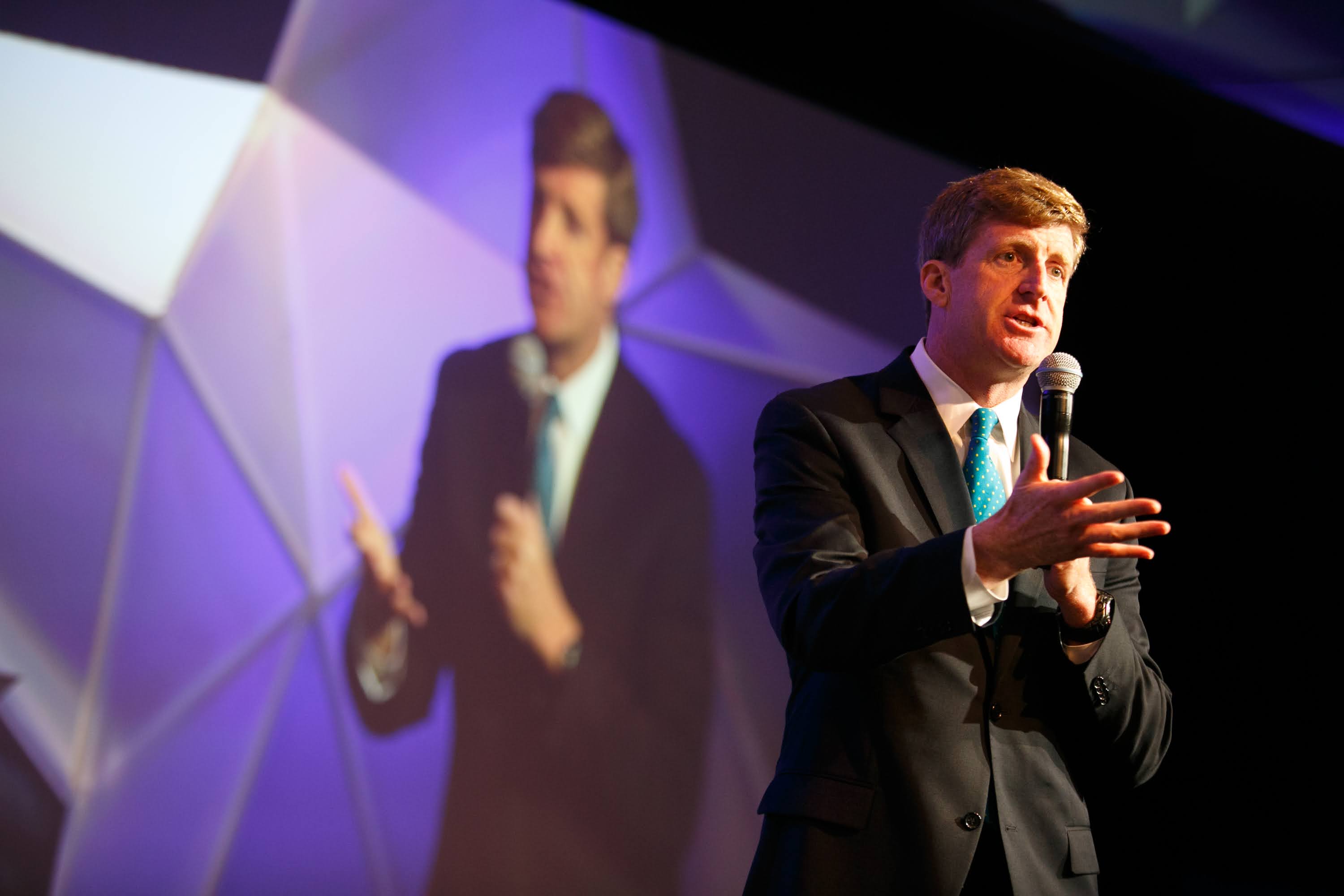
Profiles in Courage: the Next Generation
By Kerry J. Bickford, VOICES Editor
Growing up in the ’60s and 70’s it was impossible not to be familiar with the Kennedys. Not only was John F. Kennedy our 35th president, but he came from a family of public servants whose lives of joy and sorrow played out in a very public way – many of whom, like me, summered on Cape Cod.
Although Senator Edward (Ted) Kennedy’s youngest son, Patrick, was much younger, I remember relating to and feeling great compassion for him over the years, as his mother (like mine) struggled with alcohol. Since there was even more stigma back then than there is now, there wasn’t much support for families like ours –nor was there much compassion.
When Patrick’s personal struggle with mental health and substance use surfaced around the age of 18, Patrick eventually chose transparency over secrecy – but this did not come without a price. In doing so, he illuminated “secrets” about mental health and substance use issues in his own family which had not been previously shared – and not everyone was happy about it. But in doing so, he broke through barriers and smashed stigma in ways that have opened doors for others ever since. In an interview by Kate Story in Town & Country magazine, Kennedy explained his reasons for doing so: “The reason I told my story is that part of fighting the stigma is not being consumed by the stigma,” he says. “So how can I be fighting for mental health over here and keeping it under wraps over there because I’m worried about this same judgment?”
Still, there has been somewhat of a backlash from relatives who either remember things differently or object to the airing of private family matters. In his book, A Common Struggle, he speculates that his father, Senator “Ted” Kennedy suffered silently through the violent deaths of four siblings and how, in his opinion, this contributed to a dependency on alcohol. Anyone who has struggled with the death of a loved one knows that it can feel like a bottomless journey. Some survivors turn to substances to help numb the pain and our instinct is to protect them by keeping their secrets. But in the case of public servants, it becomes even more complicated for them as a result of lack of privacy, rumors, and public shaming.
Kennedy chose not only to speak his own truth, but to elevate public awareness of the inequities of mental health coverage and addiction, which led him to co-author the Mental Health Parity and Addiction Equity Act in 2008 – a bill that secured equal insurance coverage for mental health and addiction treatment. His book details how he was doing this while simultaneously confronting his own disease – and making some very public missteps in the process, eventually leading him to step down from his position as Rhode Island congressman and focus on mental health and addiction on a national level -- and inviting conversation and empathy for two very misunderstood diagnoses.
Patrick has survived his own share of overdose loss, including the accidental overdose deaths of his cousins David Kennedy and Saoirse Kennedy Hill. He spoke publicly about Saoirse’s battle with depression following her death in 2019 and called her a “hero” for being so open about her struggles. “This affects every single family in America,” Patrick added. “It’s way past time that we deal with this in a way that we would deal with any other public health crisis.” A recent article in the Providence Journal by Mark Patinkin follows him through a typical day which includes some good self-care, including two AA meetings, and a workout in between the hectic schedule of family life and work,with a constant eye on the dangers of relapse. He knows the price he would have to pay and he is vigilant.
Over 100,000 Americans have experienced overdose losses and devastating trauma in the past year alone, and I have to think that Patrick Kennedy has been somewhat of a trailblazer in the way he has opened up the conversation about mental health and addiction in an attempt to reduce the isolation that so many people feel, because somehow we believe that we are alone. He has done this while remaining faithful to his own recovery, focused on his family, and dedicated to being a role model and mentor to his nieces and nephews. He works hard at staying healthy, attending 12-step meetings, and doing what he can to maintain a balance in his life.
I still feel the empathy of our somewhat parallel journeys over the years and am grateful that there is someone like Patrick who has the courage and fortitude to use his own battles as a blueprint for moving forward, and building human bridges that unite us all in increased awareness and committed universal action.
